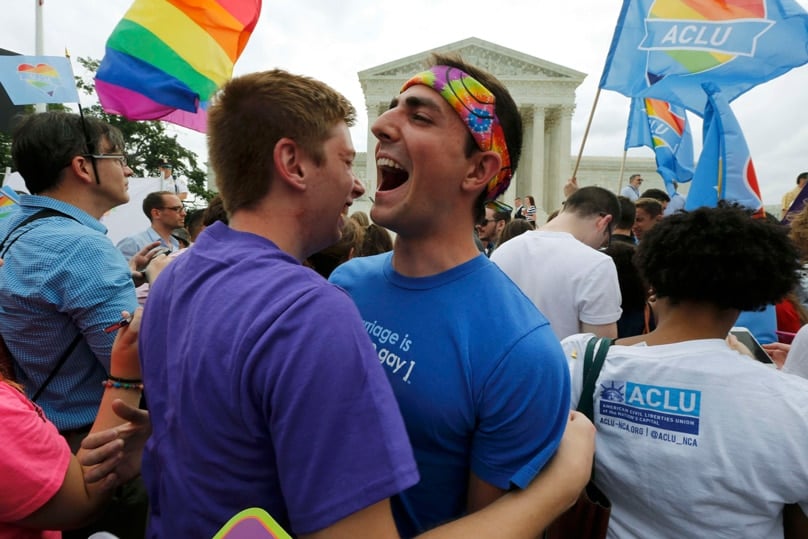
Submissions made by same-sex marriage advocates to a Senate Inquiry looking at the interplay between religious freedom and the potential redefinition of marriage make for an enlightening (and concerning) read.
Late last year, the Senate invited comments on an “Exposure Draft” of legislation to amend the Marriage Act to include same-sex couples in those eligible to be married.
An Exposure Draft is not the same thing as proposed legislation; it is rather an opportunity to test responses to the ideas contained in the document, but the proposal still gives an important insight into current thinking on the topic.
As I mentioned a couple of weeks ago, the Exposure Draft proposed that if the law was to be changed to allow same-sex marriage, ministers of religion and marriage celebrants would be able to refuse to solemnise same-sex weddings, and religious bodies would be able to decline to provide services or allow the use of their premises for those weddings.
Those limited protections are the total extent of the “exemptions” available for people of faith in a post- same-sex marriage world.
The proposal demonstrates a complete misunderstanding of a number of key issues, not the least of which is that freedom of religion is a right in and of itself, and not an “exemption” to anti-discrimination laws. It also shows a desire to limit the number of people who are able to exercise freedom of religion to those who are “professional” people of faith, basically the clergy and those who work for religious organisation, disregarding the reality that religious freedom is a right granted to all people – without exception.
The proposal is also a failure to acknowledge that concerns around same-sex marriage extend beyond the event of the wedding itself and to the broader consequences of the redefinition of marriage. For example, there are no proposed protections for parents who might be concerned about changes to sex education in schools which would stem from the legalisation of same-sex marriage.
You might recall that about a year ago, Archbishop Julian Porteous and the Australian Catholic Bishops’ Conference were told that they all had a case to answer before the Tasmanian Anti-Discrimination Commission for distributing a pastoral letter on marriage.
The proposed “protections” contained in the Exposure Draft would do nothing to prevent this from happening again. So people of faith have good reason to be concerned that the proposed protections do not come close to actually protecting their freedoms. Even so, these limited accommodations have been largely (and vehemently) rejected by same-sex marriage advocates.
In what is being billed as the largest national survey of LGBTIQ Australians, sponsored by activist groups Parents and Friends of Lesbians and Gays (PFLAG) and just.equal, respondents were asked their views on religious freedoms.
Forty six per cent of those polled described themselves as “strongly opposed” to provisions which would allow ministers of religion to refuse to marry same-sex couples. That’s an alarming statistic. For all of the claims that “same-sex marriage will not affect you,” close to half of those surveyed want to impose acceptance, and even celebration, on ministers of religion.
The situation is much bleaker for civil celebrants. 92.6 per cent of respondents opposed exemptions for them to wed same-sex couples based on conscientious or religious belief. Even more (94.3 per cent) rejected the ability for religious organisations to be able to refuse to provide goods or services for same-sex weddings.
And approximately 90 per cent disagreed that florists, bakers, photographers and other service providers should be allowed to refuse to provide services for a same-sex wedding. (As a side note, this is not the same thing as refusing to serve a person based on sexual orientation. Christians and others serve LGBTIQ persons every day; the objection would only be to providing those services for a same-sex wedding.)
The inclusion of this statistic was somewhat ironic, given that the survey results were released in the same week as US President Donald Trump’s inauguration, at which a number of celebrities refused to perform, and a number of designers refused to have their clothing made available to First Lady Melania Trump, because of their objection to Donald Trump’s policies. Their decision to decline the invitation was celebrated by many LGBTIQ activists, even though these artists were exercising the exact same conscientious objection which they seek to deny to people of faith.
But this is how “tolerance” is redefined when marriage is redefined. Public hearings on the back of these submissions were held in various capital cities this week, and the Committee will report its findings on 13 February. I look forward to updating you on the outcome in due course.
